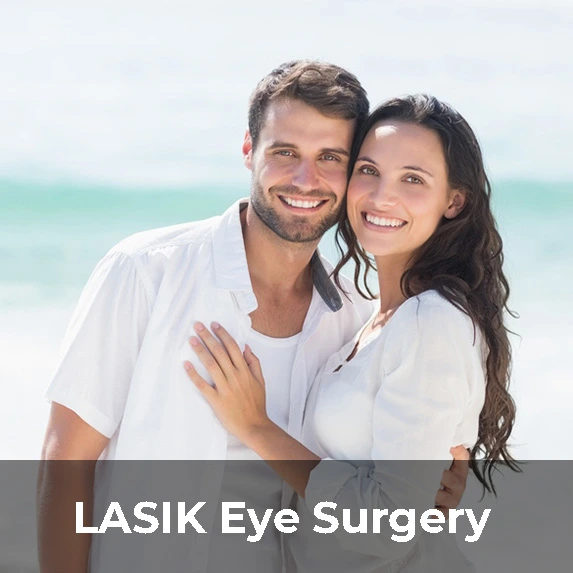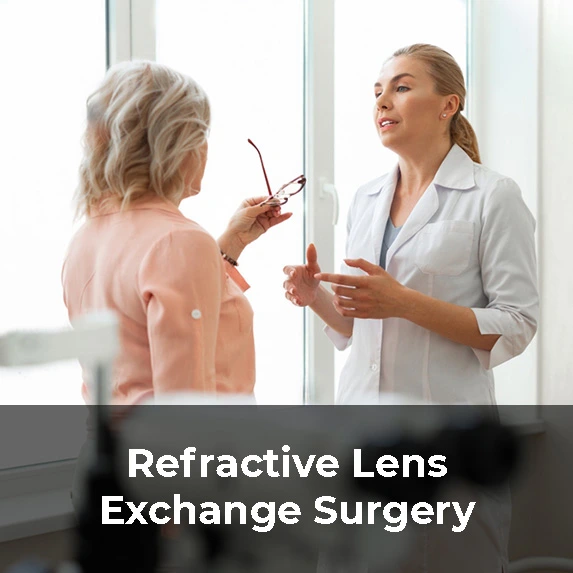
You may have heard the term “legal blindness” and wondered what it really means to be legally blind. We’re here to help you understand this complex—and often misunderstood—term so you know what warning signs to be aware of in your own life.
Keep reading to learn about the technical definition of legal blindness along with its common causes, treatments, and prevention tips.
The Definition of Legal Blindness
Normal or “perfect” vision is 20/20 central visual acuity. Someone is legally blind if they:
- Have 20/200 central visual acuity or worse in their better-seeing eye with the help of prescription glasses or contacts
- Have a visual field of 20 degrees or less
If a person with 20/20 vision can see an object that’s 200 feet away from them, someone with 20/200 vision would only be able to see the same object from 20 feet away. If a person can see clearly while wearing prescription glasses or contacts, they’re not considered to be legally blind.
It’s important to note that there are different levels of blindness. For example, legal blindness doesn’t necessarily equate to total blindness, which is characterized by a complete lack of light and form perception. However, some people who are legally blind are also totally blind.
The vast majority of people who are legally blind do not fall within the threshold of total blindness.
The U.S. government uses this definition of legal blindness to determine eligibility for things like federal disability benefits, driving privileges, rehabilitative care, school and workplace accommodations, low vision devices, and tax exemption programs. Doctors use this definition to determine candidacy for various vision treatments, like medication and surgery.
3 Tests That Are Used to Diagnose Legal Blindness
Optometrists and ophthalmologists use these three methods to test for legal blindness in patients.
Snellen Eye Chart
Even if you’ve never been to the eye doctor, you could probably recognize a Snellen eye chart. It features a series of black capital letters that decrease in size as you move down the chart. As a result, the letters at the bottom are the most difficult to read. Someone who is legally blind can only read the top letter on the chart.
Your doctor will have you cover one eye at a time and read the lowest row of letters so that you can measure your visual acuity in each eye. This test helps your doctor determine if you need prescription glasses or contacts or if you need a new prescription for the glasses or contacts you already wear.
Confrontational Visual Field Test
A confrontational visual field test is another way that eye doctors measure visual acuity. As the doctor sits in front of you, he or she will hold up a series of fingers in various positions to test all four quadrants in your visual field—particularly your peripheral vision. You will cover one eye at a time and recite the number of fingers you see. If you struggle to detect the number of fingers being shown, you may be legally blind.
Comprehensive Eye Exams
A comprehensive eye exam uses a series of tests to measure your visual acuity and detect common eye diseases and conditions that could lead to legal blindness. If you have one of those vision conditions, you face a greater risk of losing your vision and becoming legally blind—if the condition goes unchecked.

Common Vision Conditions That Are Linked to Legal Blindness
The common vision conditions described below can cause legal blindness if left untreated.
Age-Related Macular Degeneration
Age-related macular degeneration is the leading cause of severe vision loss in adults over the age of 60. It occurs when the macula—the central part of the retina—deteriorates. The retina is the light-sensing nerve tissue at the back of the eye. Although age-related macular degeneration doesn’t typically cause total blindness, it’s still a possibility. At the very least, it can cause visual impairments that inhibit daily tasks.
Cataracts
A cataract is distinguished by a clouding of the eye’s natural lens, which blurs vision. Cataracts make it more difficult to complete daily tasks, like reading, driving, and watching TV. The more a cataract progresses, the more likely it is to cause vision loss, which could lead to blindness.
Diabetic Retinopathy
Diabetic retinopathy is a vision condition that can affect people with both type 1 and type 2 diabetes. It damages the blood vessels at the back of the retina, which can lead to vision loss and even blindness if left unchecked.
Glaucoma
Glaucoma constitutes a group of vision conditions that damage the optic nerve, which transfers images from the eye to the brain. Similarly to age-related macular degeneration, glaucoma is a leading cause of blindness in people over age 60.
How Legal Blindness Is Treated
The particular vision condition that caused you to become legally blind will help your doctor determine the proper treatment plan. Common treatments for legal blindness include prescription glasses or contacts, medication, a corneal transplant, cataract or retinal surgery, and visual rehabilitation—like low vision therapy and low vision devices.
These treatments are designed to enhance one’s vision to improve their daily function and overall quality of life. Keep in mind, though, that not all cases of legal blindness can be treated.
How to Prevent Legal Blindness
Prevention is always preferred over treatment. Here are five practical ways that you can prevent legal blindness.
- Schedule routine eye exams with dilation: These comprehensive exams enable doctors to detect, diagnose, and treat vision conditions that could cause legal blindness.
- Maintain a healthy lifestyle: Eat nutrient-rich foods, exercise regularly to maintain a healthy weight, and get plenty of sleep each night.
- Know your family history: Some eye conditions that cause legal blindness are hereditary. Knowing your family’s history of these conditions can help you protect your vision.
- Wear eye protection when necessary: Whether you’re mowing the lawn or participating in a contact sporting event, you should wear protective eyewear to shield your eyes from common hazards.
- Don’t smoke: If you’ve never smoked, don’t start. If you currently smoke, quit.
Schedule Your Annual Eye Exam at Specialty Eye Institute
The best thing you can do for your vision is schedule routine eye exams. During a comprehensive eye exam at Specialty Eye Institute, the doctor will check your eyes for signs of common vision conditions that can cause legal blindness. This exam also helps the doctor determine your need for prescription glasses or contacts.
Schedule your appointment today to get started.
 877-852-8463
877-852-8463 Careers
Careers Locations
Locations Patient Portal
Patient Portal Request Appointment
Request Appointment








 877-852-8463
877-852-8463
